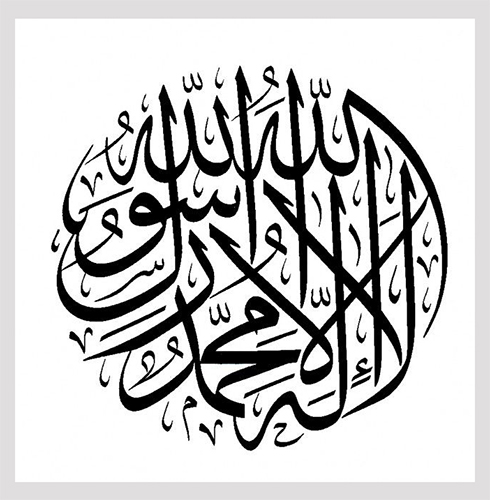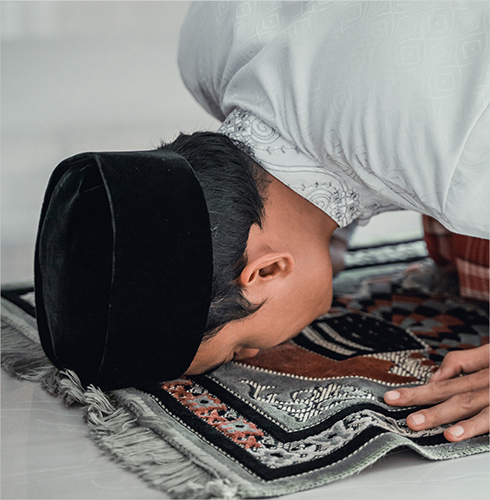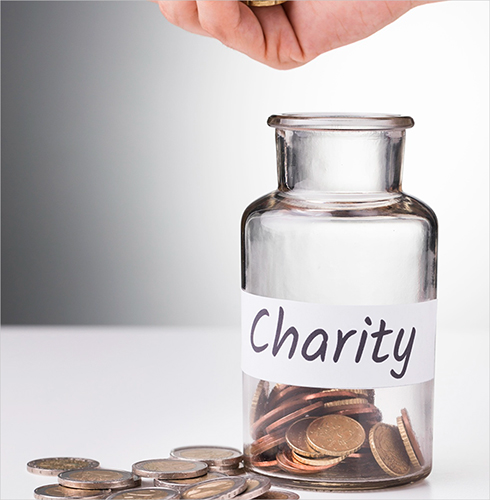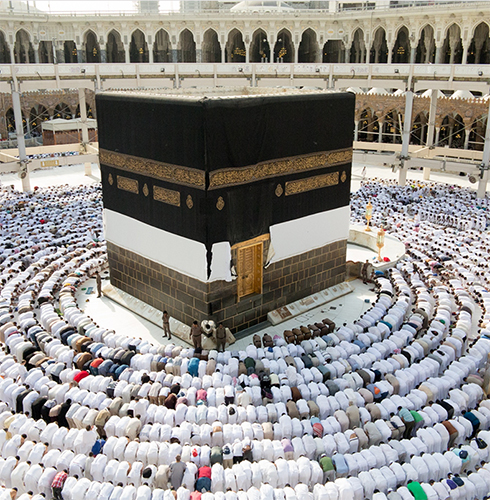Pillars of Islam
The five foundations strengthening our faith
All Muslims are obligated to follow five key practices throughout their lives. These practices form the foundation of Muslim life, which is why they are known as pillars. The five pillars of Islam are Shahada, Salah, Zakat, Sawm, and Hajj. It is imperative that Muslims live their lives in accordance with each pillar and all that it entails. Among others, each pillar also accounts for those who cannot fulfil some or all of them, such as those suffering from illness, menstruation or pregnancy, or lacking financial resources.

Shahadah, is the conscious and voluntary declaration of faith “La ilaha illallahu Muhammadur rasulullah” “There is no god except Allah, Muhammad (peace be upon him) is The Messenger of Allah” This declaration contains the two basic concepts of Tawhid and Risalah – Belief in One God and Prophet Muhammad is the Messenger of God.

Salah (compulsory prayer) is offered five times a day, either in congregation or individually. It is a practical demonstration of faith, and keeps a believer in constant touch with his Creator. The benefits of Salah are far-reaching, long-lasting and immeasurable.
To make sure you never miss your prayer, our website gives you up-to-date daily pray times for the city of Birmingham on our Home page!

Sawm is the annual obligatory fast during the month of Ramadan, the ninth month in the Islamic calendar. From dawn to sunset every day a Muslim refrains from eating, drinking, smoking and from sexual activity with his marital partner, seeking only the pleasure of Allah (subhanahu wa ta’ala).

Zakat (welfare contribution) is a compulsory payment from a Muslim’s annual savings. It literally means purification, and is an annual payment of 2.5% of the value of cash, jewellery and precious metals; a separate rate applies to animals, crops and mineral wealth.
Learn more about Zakat by visiting our dedicated Zakat page
You can also calculate your annual Zakat using our Zakat

Hajj (pilgrimage to the House of Allah) is an annual event, obligatory at least once in a lifetime for Muslims who have the means to perform it. It is a journey to the House of Allah (Al-Kabah) in Makkah, Saudi Arabia, in the month of Dhul al-Hijjah, the twelfth month of the Islamic calendar.

I have faith in Allah and His Angels, His Books and His Messengers, and the Day of Judgement and that all good and evil and fate is from Almighty Allah and it is sure that there will be resurrection after death.